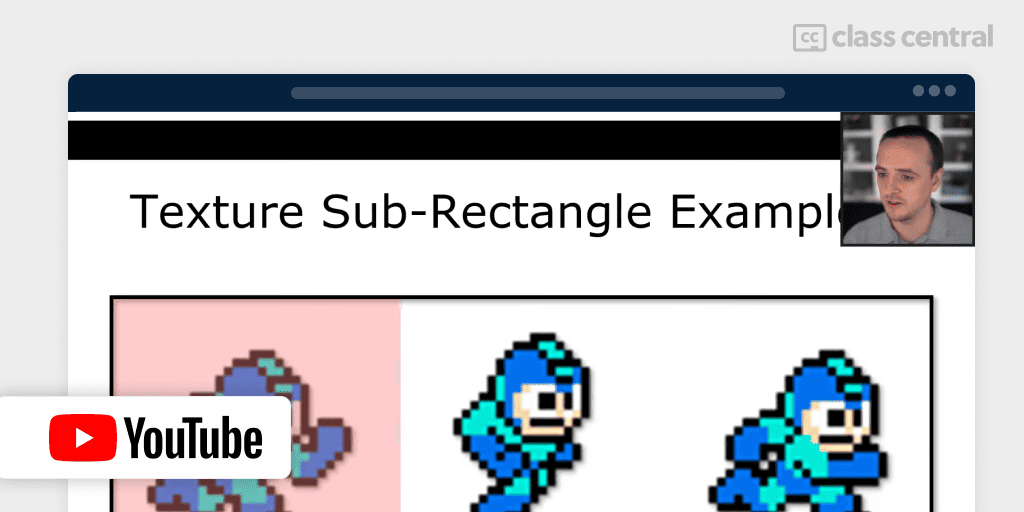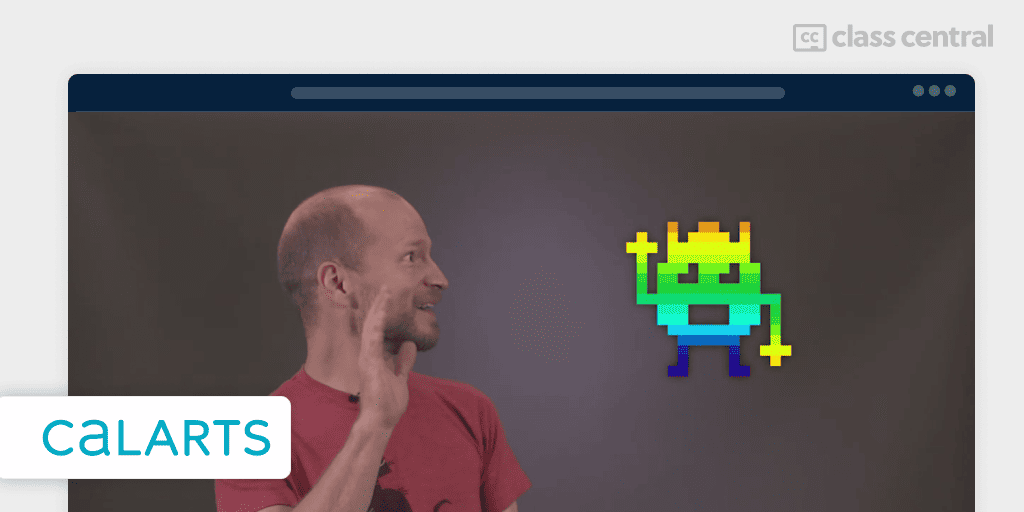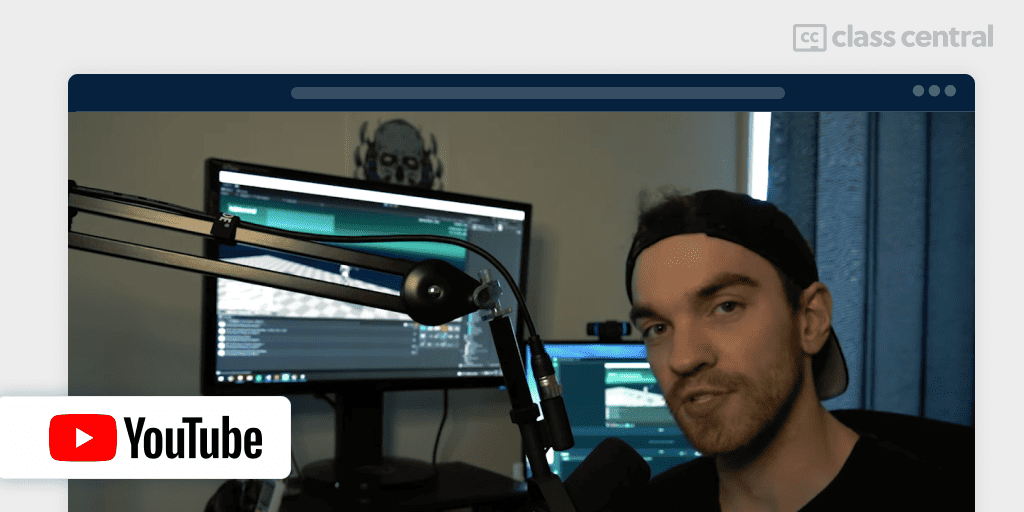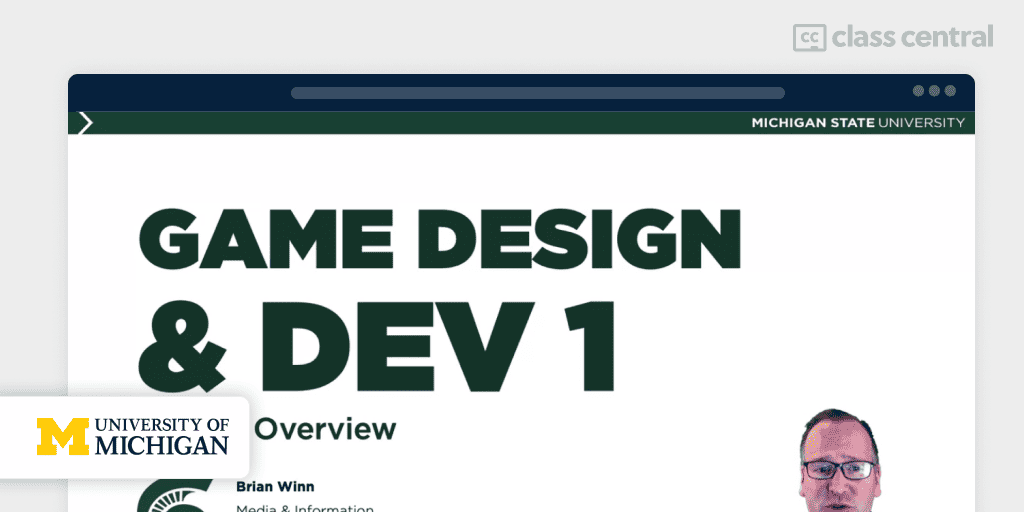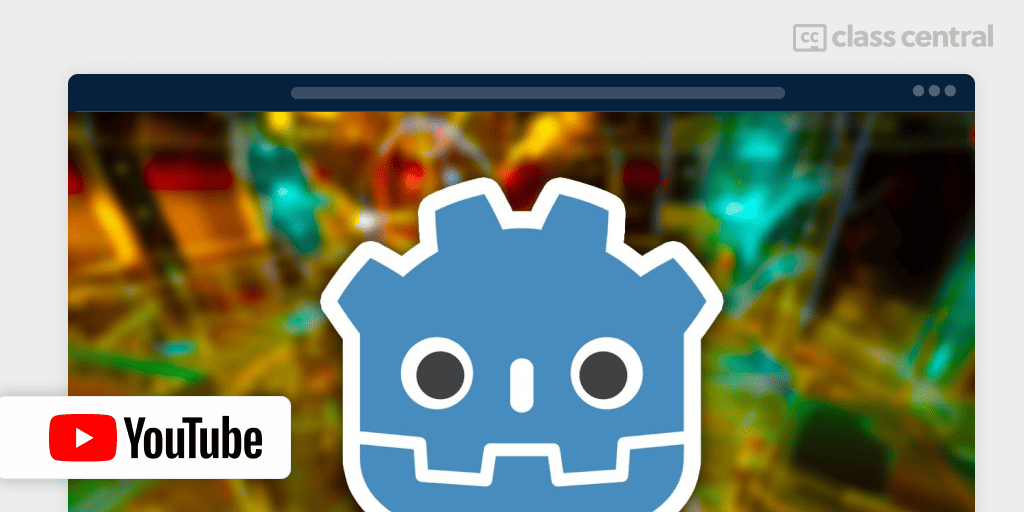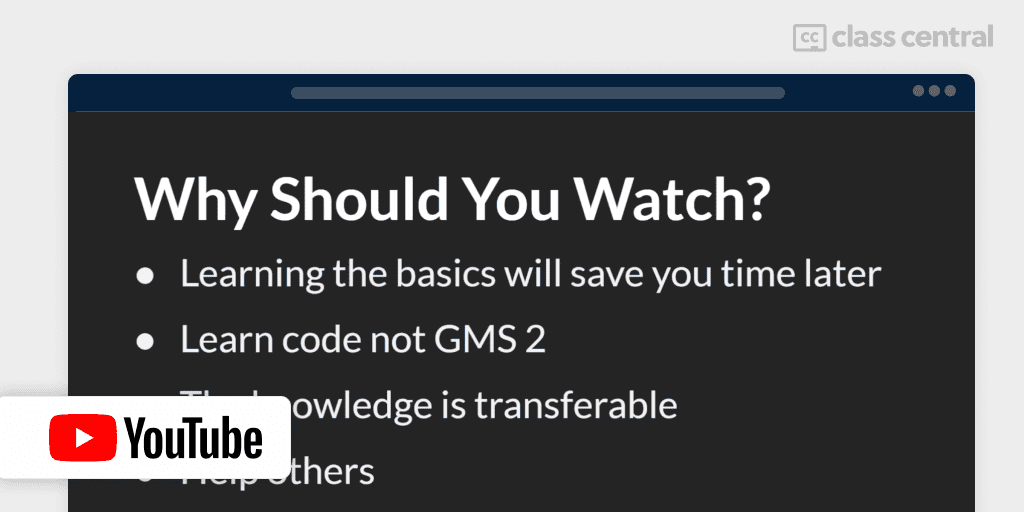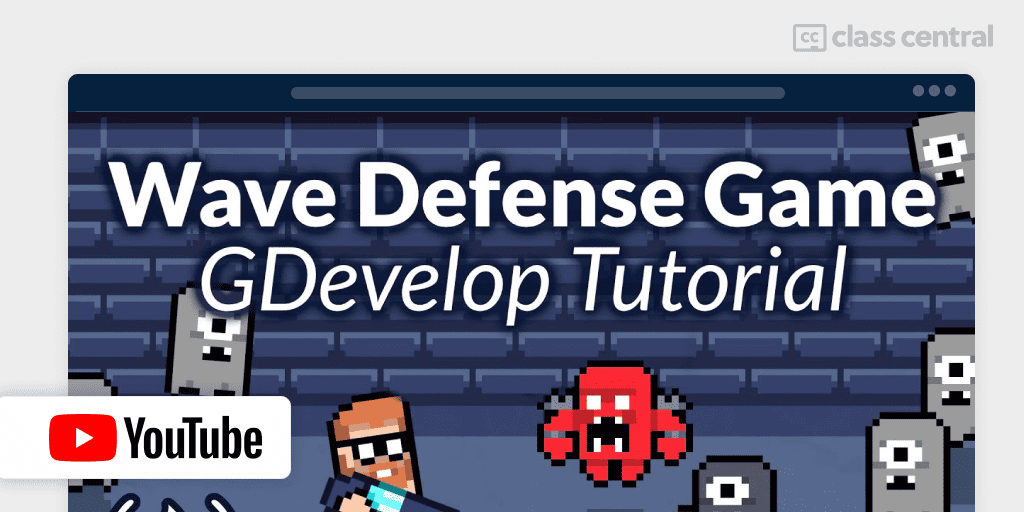9 Best Game Development Courses for 2024: Build Your Dream Game
Unsure how to start in Game Development? Explore these top free & paid courses on Unity, Unreal Engine, Godot, GameMaker Studio, and more!
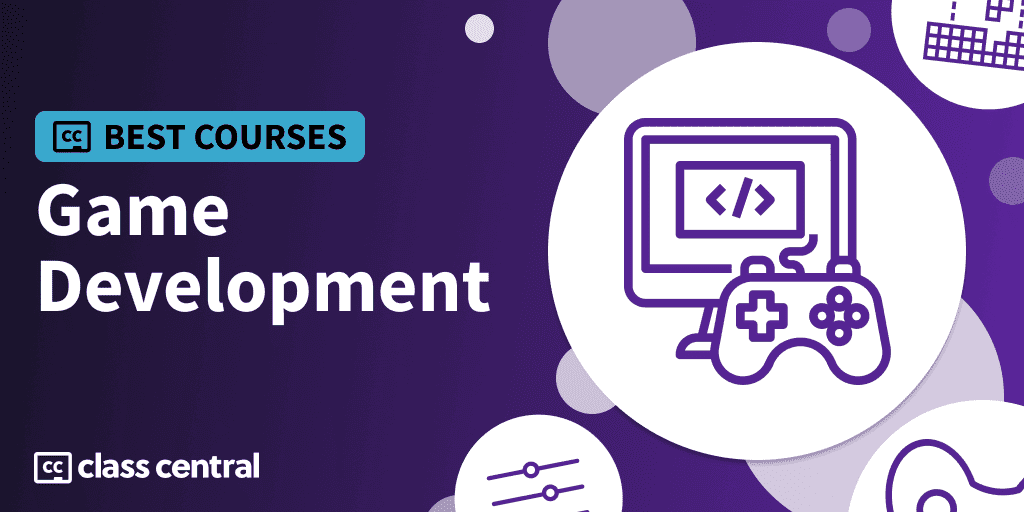
The post-pandemic video game industry is thriving, and it’s not showing any signs of slowing down. In fact, Statista says the global games market is set to jump from making $455 billion now to a whopping $625 billion by 2028.
But here’s the thing: while the industry is ripe with opportunities, it can be a bit of a maze for beginners. There are countless game development engines out there, each with its own strengths and weaknesses. Unity, Unreal Engine, Godot, GameMaker Studio… the list goes on.
So, how do you navigate this labyrinth of game development? How do you decide which framework to learn, or which course to take? That’s where our Best Courses Guide (BCG) comes in.
In this BCG, we’ve carefully handpicked the best courses, most of which are free, to suit your needs — whether you’ve never written a line of code, or want to take your first steps into the world of game development. We’ve included different game engines and explained why you might choose one over the other, and even a course where you build an entire game engine from scratch.
Click on the shortcuts for more details:
- Top Picks
- What is Game Development?
- What are Game Engines?
- Stats
- Notable Game Dev YouTubers to Follow
- Additional Game Dev Resources
- BCG Methodology
Here are my top picks. Click on one to skip to the course details:
What is Game Development?
Game development, in its simplest form, is the process of creating a video game. But don’t let that simplicity fool you. It’s a complex, multi-faceted discipline that combines creative artistry with technical precision. The sheer amount of work that goes into delivering the best heartfelt, action-packed, or plain fun gaming experience is why most games nowadays are made by large teams, comprising dozens or even hundreds of dedicated writers, designers, and developers.
While AA Studios often spearhead game development, it’d be a sin to forget indie developers. Consider the likes of Minecraft, Among Us, Stardew Valley, Five Nights at Freddy, and Undertale. These games, crafted by small teams or even individual creators, have left their mark on the childhoods of many players worldwide. They have proven success in game development doesn’t hinge on a large team or a hefty budget. Rather, a unique vision, an innovative approach, and a deep understanding of player engagement can lead to creations that compete with, and sometimes surpass, those of larger studios.
The popularity of game development has been on a steady rise, driven by the increasing number of gamers worldwide, which is estimated to be 3.32 billion in 2024, or nearly half of the world’s 8 billion population.
A chart showing the growth of gamers worldwide. Source: Newzoo
And a rise in demand translates to a rise in compensation. According to the ZipRecruiter, the average annual wage for game developers in the US is $108K in 2024.
What are Game Engines?
Game engines are software frameworks designed to facilitate the development and creation of video games, providing developers with tools and functionalities such as rendering graphics, physics calculations, and artificial intelligence behaviors. Several game development software that are popular among developers, all of which are covered in the courses below, are:
- Unity: Unity is a cross-platform game engine developed by Unity Technologies. It is used to create both three-dimensional and two-dimensional games as well as simulations. It’s extremely flexible, with popular examples being Among Us, Escape from Tarkov, and Beat Saber.
- Unreal Engine: Developed by Epic Games, Unreal Engine is known for its cutting-edge graphics. It is used in many AAA games, like Fortnite, Tomb Raider, and Street Fighter 5.
- Godot: Godot is a free and open-source game engine. It is known for its flexibility and ease of use. One notable game is Getting Over It with Bennett Foddy.
- GameMaker Studio: GameMaker Studio is a proprietary game development software developed by YoYo Games. It is known for its simplicity and is often used for 2D game development, such as Undertale and Omori.
- GDevelop: GDevelop is an open-source, cross-platform game creator designed to be used by everyone — no programming skills required.
Also see our BCGs for Unity, Unreal Engine, and Godot.
Stats
- Two courses require no programming experience whatsoever, while the other seven assume so.
- Eight of the courses are free or free-to-audit, while one is paid.
- Four of the courses provide certification of completion, but only one of them provides them for free
- Around 87K learners are following the Game Development subject on Class Central.
Best Free Hands-On Intro to Game Development (Harvard University)
| Reasons to Take |
|
| Reasons to Avoid |
|
CS50’s Introduction to Game Development (CS50G) is a hands-on project-based course produced by Harvard that anyone can take for free. In it, you’ll learn about 2D and 3D graphics, animation, sound, and collision detection using LÖVE 2D and Unity frameworks, and Lua and C# languages.
CS50G (and the rest of the CS50 courses in general) has received many glowing reviews from Reddit and YouTube, but what separates this course from the rest of the crowd?
For starters, the video lectures are insanely well-produced and lively to the point where it’s difficult to get bored of them, thanks to the engaging instructors and course pedagogy. For example, the course introduces game dev concepts by using classic games as case studies to help make the lessons relatable, such as movement and collision detection with Pong and procedural dungeon generation with Zelda.
But the biggest reason why CS50 courses are so well-loved is because of its project submissions. Your projects will be graded and given feedback on, which is essential for beginners to learn from their mistakes. Not to mention, these projects also count towards your free certificate.
However, I must add, the frameworks used in the course are outdated by five years. Some code may not run as intended, but don’t let that fool you into thinking that the course is abandoned. You’ll find erratas for using newer versions of LÖVE 2D, not to mention an active Discord community of learners to rely on. Be rest assured that the principles of game development won’t ever change.
By the end of the course, you’ll have developed multiple games and gained a comprehensive understanding of game design and development.
CS50G picks up where CS50 left off, which introduced the basics of computer science and programming. Thus, you should have basic experience with any programming language prior to starting this course.
| Institution | Harvard University |
| Provider | edX |
| Instructor | David J. Malan and Colton Ogden |
| Prerequisites | CS50 or equivalent programming knowledge |
| Workload | 72–108 hours |
| Enrollments | 700K |
| Cost | Free |
| Exercises | Autograded and graded projects |
| Certificate | Unverified (Free), Verified (Paid), or Professional (Paid) |
Best Free Rigorous Intro to Game Programming (Memorial University)
| Reasons to Take |
|
| Reasons to Avoid |
|
Have you ever wondered how your favorite video games function behind the scenes? I’m sure we all have.
But are you mad enough to want to build an entire 2D game engine and a 3D physics engine from the ground up, complete with animation, sound, entity interaction, saving and loading, NPC AI, and more?
Did I just hear a resounding shout of “YES!”? Welcome aboard to Memorial University’s Intro to C++ Game Programming, David Churchill will be your instructor. Make sure to strap yourselves tight, for this will be one wild ride.
This is a free introductory course for students interested in learning the fundamentals of game programming, a subset of game development focusing on the finer technical aspects of creating a game, such as game engine architecture. Expect the course to be challenging yet highly rewarding. Whenever you encounter a nasty bug or performance issue in the future, you’re more likely to go “Ahah, that’s it!” rather than having to browse through 200 tabs of StackOverflow posts or have a 48-hour chat with your favorite AI assistant.
You don’t need C++ to take this course, David will teach you its basics of C++20 along with the SFML graphics library. In fact, David is excellent at breaking down complex topics and utilizing visuals and examples to get his point across, so don’t believe that this course will be as dry as tofu left in the fridge too long just because it’s technical.
There are four projects to be completed, and their specifications can be found in the video walkthrough of the assignments or by piecing it together yourself. As for the course syllabus, here’s what you’ll learn:
- Introduction to C++ / SFML: Covers the basics of C++ and SFML, including syntax, semantics, compiling, linking, and creating graphical user interfaces.
- Low-Level 2D Game Engine Design / Implementation: Here, you’ll learn about the architecture and layout of a game engine, asset loading, memory management, user input handling, and more.
- ECS Game Engine Architecture: Introduces the Entity-Component-System (ECS) architecture, its design, structure, and memory management, along with strategies for implementing gameplay mechanics. More advanced topics include shaders and particle systems.
- Physics / Math for Games: Delves into the mathematical and physical aspects of game programming, including vector math, kinematics, collision detection, and resolution.
- Gameplay Programming: Focuses on the implementation of game mechanics, including artificial intelligence, entity interaction, game configurations, event triggers, and inventory systems.
| Institution | Memorial University |
| Provider | YouTube |
| Instructor | David Churchill |
| Prerequisites | Familiarity with any programming language and linear algebra |
| Workload | >28 hours |
| Views | 40K |
| Cost | Free |
| Exercises | Available, but not in PDF form |
| Certificate | None |
Best Specialization for Game Art and Design (California Institute of the Arts)
| Reasons to Take |
|
| Reasons to Avoid |
|
Whereas the previous course focused on the technical side of things, this specialization from the California Institute of the Arts hones in on the creative aspects of game development.
The Game Design: Art and Concepts Specialization places a strong emphasis on experimentation, encouraging you to explore innovative ways to inspire captivating video game design, compelling storylines, character development, and immersive world building, all before a single line of code is written.
You’ll learn by watching the short lecture videos. Additionally, you’ll have the opportunity to glean insights from renowned animators and designers through occasional interviews, which is pretty sweet. At the end of each week you’ll answer a peer-graded assignment (for paying learners) or a discussion prompt. As usual with many Coursera courses, graded exercises are only available to those pursuing a certificate. (If you don’t mind missing out on those exercises, see how to audit Coursera courses for free.)
The specialization is divided into five courses, each focusing on a different aspect of game design. Here’s a general overview of what you can expect to learn:
- Introduction to Game Design: This course provides a broad overview of the field. You’ll explore why people play games and draw out basic principles of game design from there, such as game mechanics and narrative.
- Story and Narrative Development for Video Games: The course delves into the significance of narrative in video games, equipping you with the skills to weave engaging stories for your own creations.
- World Design for Video Games: Here, you’ll learn about world design, including how to create immersive game environments by choosing a particular theme or style.
- Character Design for Video Games: This course focuses on character design, teaching you how to create compelling and believable characters for your games.
- Game Design Document: Define the Art & Concepts: The final course serves as a capstone project, where you’ll apply everything you’ve learned to design your own game. You’ll generate an engaging game design document for a personal game project, detailing the conceptual, narrative, and aesthetic elements of your game. Only available to certificate-takers.
| Institution | California Institute of the Arts |
| Provider | Coursera |
| Instructor | Dariush Derakhshani, Fran Krause and Théotime Vaillant |
| Prerequisites | None |
| Workload | 40 hours |
| Enrollments | 44K |
| Rating | 4.7 / 5.0 (2.5K) |
| Cost | Free-to-Audit |
| Exercises | Discussion Prompts and Peer reviews |
| Certificate | Paid |
Best Free Course for Mobile Game Development (Michael Doyon)
| Reasons to Take |
|
| Reasons to Avoid |
|
This is the best free course for you developers looking to break into the mobile gaming space.
Using the Unity framework, this course explores the entire game development cycle, and I mean the entire cycle, from the initial planning stages to the final publishing on the Google Play Store and Apple Store.
You’ll replicate the gameplay and feel of Subway Skaters, a clone of Subway Surfers, using features like the Universal Render Pipeline for better graphics and Shadergraph for stunning visual effects. Not only that, you’ll also implement procedural obstacle generation, swiping to slide and dodge those obstacles, coins to collect as a reward incentive, and to top it all off, advertisements to help you monetize your game.
Don’t worry if you’re using a newer version of Unity; the course uses Unity 2019, but the lessons are still relevant for 2021 and 2022. And should you encounter any issues with the course, just check the YouTube comments or reach out on his Discord channel.
| Institution | Mercenary Camp |
| Provider | YouTube |
| Instructor | Michael Doyon |
| Prerequisites | Experience with C# or similar programming language |
| Workload | 13–14 hours |
| Enrollments | 118K |
| Rating | 4.4K |
| Cost | Free |
| Exercises | Demonstrations |
| Certificate | None |
Best Newbie Specialization for Unity (Michigan State University)
| Reasons to Take |
|
| Reasons to Avoid |
|
Want to make games, but don’t know how to program? Why not learn how to do both at the same time? That’s what this project-based Coursera specialization from Michigan State University is all about.
Game Design and Development with Unity 2020 introduces beginners to the theoretical and practical aspects of game development, such as design, engineering, art, production, quality assurance, and audio.
Using the popular Unity engine (2020 edition) and C# programming language, Brian Winn will help you create your own original 2D and 3D games of the shooter and platformer genre from conception to prototype. All of these will be taught through a mix of video lectures and reading notes.
Here’s what you’ll learn and build in each course:
- Course 1: Take your first steps in Unity and C# programming by building a Solar System Project and a 2D Shooter.
- Course 2: Learn the foundation of game development by making a 2D Platformer and spice up its game design utilizing the play and experience framework.
- Course 3: Understand level design, game balancing, prototyping, and playtesting fundamentals with the creation of a first-person 3D shooter.
- Course 4: Put theory into practice and gain additional experience with following best practices by building a 3D Platformer.
- Course 5: The capstone project of the specialization. You’ll go through the entire game dev workflow, from brainstorming, to early prototyping, to finally a playable state.
To take the specialization for free without applying for free trial or financial aid, you’ll need to individually audit the courses. Do note that as an auditor, you won’t be able to access the graded quizzes or peer reviews.
Already know how to program? My Unity BCG has more courses better suited for experienced developers.
| Institution | Michigan State University |
| Provider | Coursera |
| Instructor | Brian Winn |
| Prerequisites | None |
| Workload | 80 hours |
| Enrollments | 18K |
| Rating | 4.7 / 5.0 (500) |
| Cost | Free-to-Audit |
| Exercises | Quizzes and Peer-Reviews |
| Certificate | Paid |
Best Paid Course for Unreal Engine (Stephen Ulibarri)
| Reasons to Take |
|
| Reasons to Avoid |
|
Unreal Engine 5 C++ The Ultimate Game Developer Course, though paid, is actually a steal if you purchase it at a discount (posted on the instructor’s Discord). I’d dare say that it’s the best course to learn Unreal Engine if you already know C++ or some other C-like language.
Why? Stephen Ulibarri is the reason. His courses are a treasure trove of comprehensive and detailed content, covering everything from the basics to the nitty-gritty of game development. And above all, he is a great teacher — the 4.8 / 5.0 rating on Udemy and learner testimonials from the Unreal Source Discord and r/UnrealEngine subreddit are proof of that.
In this course, you’ll develop an Action-RPG Style Open World Game. You’ll learn how to implement typical game elements, from souls-like combat and enemies to gold and experience points, health and death mechanics, and the exploration of dungeons and landscapes. Plus, you’ll get to play around with some of the shiny new features of UE5, like Motion Warping, Meta Sounds, Linked Anim Graphs, and creating visual effects in Niagara. And if you ever find yourself stuck, Ulibarri and his course helpers are just a Discord message or Udemy Q&A away.
Interested in Unreal Engine? Check out my BCG for Unreal Engine.
| Provider | Udemy |
| Instructor | Stephen Ulibarri |
| Prerequisites | C++ or other programming languages |
| Workload | 53 hours |
| Enrollments | 29K |
| Rating | 4.8 / 5.0 (3.8K) |
| Cost | Paid |
| Exercises | Demos, Challenges, Quizzes |
| Certificate | Paid |
Best Free Course for Godot (Clear Code)
| Reasons to Take |
|
| Reasons to Avoid |
|
Godot is a powerful, cross-platform, and open-source game engine. And open-source means that Godot is completely free to use, no up-front payments or royalties.
While the lack of cost is certainly a major reason to choose Godot, another advantage of Godot is that it’s lightweight and easy-to-learn, especially for those without programming knowledge. The dedicated scripting language, GDScript, is intuitive to read and learn by humans, while not lacking in versatility. Godot can be used to make games for desktops and mobile devices.
The ultimate introduction to Godot 4 is one of the best free courses for Godot and programming beginners on the web. Here, you’ll create a 2D top-down shooter from scratch. With 15 hours of content covering all aspects of game development, along with challenges popups to get you engaged with coding, some of the topics you’ll explore are:
- Introduction to the Godot engine, scene and node structure, and GDScript.
- Understanding game loops, processing player input, and utilizing ‘Delta’ time for fluid animations.
- Creating dynamic game objects, designing levels, and enhancing game visuals.
- Simplifying code with inheritance and designing an interactive user interface.
- Developing enemy AI, integrating sound, and polishing the game for a complete, bug-free experience.
Interested in Godot, or want to read the full review of this course? Check out my Godot BCG.
| Channel | Clear Code |
| Provider | YouTube |
| Instructor | Christian Koch |
| Prerequisites | Beginner |
| Workload | 15 hours |
| Views | 705K |
| Likes | 21K |
| Cost | Free |
| Exercises | Coding challenges |
| Certificate | None |
Best Free Course for 2D RPG Development (SamSpadeGameDev)
| Reasons to Take |
|
| Reasons to Avoid |
|
What’s the secret sauce behind the viral success of top-down RPGs like Undertale, Omori, and Forager? It’s not Unity, nor Godot, but the rather unheard GameMaker Studio (if you’re not a JRPG fan, that is)!
Why GameMaker Studio, you ask? First, it’s user-friendly, boasting a sleek interface and a convenient drag-and-drop system. Second, it’s specifically tailored for 2D game development, making it less daunting for novices compared to engines that juggle both 2D and 3D. And last, it uses a simple and intuitive programming language called GameMaker Language (GML), which is easier to grasp than languages like C# or C++.
If you’re aiming to replicate the success of these popular RPGs, learning GameMaker Studio is the right step forward. But knowing how to program is also important, especially since GameMaker Studio isn’t the only fish in the game development pond. After all, games are programs, and programs are code.
And that’s exactly what you’ll learn in this free YouTube course by Sam Spade. Coding Fundamentals in GML will teach you all the core programming concepts you need for a successful game dev career, such as data types, variables, methods, functions, and data structures. Composed of digestible, bite-sized videos, you’re encouraged to code along with the instructor on your own machine.
Finished with the course? Excellent! Now, why not try and put your newly-found skills to practice by following this YouTube tutorial on an RPG turn-based battle system by Shaun Spalding.
| Channel | SamSpadeGameDev |
| Provider | YouTube |
| Instructor | Sam Spade |
| Prerequisites | None |
| Workload | 8–9 hours |
| Views | 53K |
| Cost | Free |
| Exercises | Demos |
| Certificate | None |
Best Free Course for No-Code Game Development (HelperWesley)
| Reasons to Take |
|
| Reasons to Avoid |
|
Want to make games, but don’t know how to program? Not to worry, you can create games without writing a single line of code with the help of the free and open-source game engine, GDevelop.
In this free course, you’ll use GDevelop to make a 2D wave defense game (think Vampire Survivors) in just under 2 hours — no coding needed whatsoever. Using the free assets provided in the video description, HelperWesley will guide you through the game development process, from handling player movement, to firing a bullet, designing menu and settings, and smartly spawning the enemies.
Though no games made with GDevelop have gone Internet viral (yet), a number of impressive games exist nonetheless. You can find a showcase of them here, which you can also play directly in your browser.
| Channel | freeCodeCamp |
| Provider | YouTube |
| Instructor | HelperWesley |
| Prerequisites | None |
| Workload | 1–2 hours |
| Views | 37K |
| Likes | 1K |
| Cost | Free |
| Exercises | Demo |
| Certificate | None |
Notable Game Dev YouTubers to Follow
- Game Maker’s Toolkit: Dedicated to the art and science of video game design. Created and hosted by Mark Brown, a former games journalist, it dives into the intricate details of game mechanics, level design, and narrative structure. His videos are a must-watch for any aspiring game dev.
- Mental Checkpoint: Creator of the game Move or Die. Has more experience in game development than GMTK, and thus offers unique perspectives and insights on the game dev experience.
- Sebastian Lague: The OG game dev YouTuber. His videos revolve around his coding adventures, be it making a chess bot, a neural network, a simulation, or games in general.
Additional Game Dev Resources
- Game Programming Patterns (Free): Written by Bob Nystrom, a game dev with eight years of experience at EA. His book contains a collection of design patterns for game devs to make code cleaner, easier to understand, and faster. Can be read online.
- Game Engine Architecture (Paid): A comprehensive guide to both the theory and practice of game engine software development, using real-world techniques from game studios like EA and Naughty Dog. If you want to dive deeper into game dev, read this.
- r/GameDev Discord: To stay steadfast on the path of game dev, consider joining an active community like this one. They’ve got channels for Unity, Unreal Engine, Godot, and GameMaker Studio support. If you need programming help or game dev advice in general, feel free to ask away.
Best Courses Guide (BCG) Methodology
I built this ranking following the now tried-and-tested methodology used in previous BCGs (you can find them all here). It involves a three-step process:
- Research: I started by leveraging Class Central’s database with 200K online courses and 200K+ reviews. Then, I made a preliminary selection of 1.3K+ Game Development courses by rating, reviews, and bookmarks.
- Evaluate: I read through reviews on Class Central, Reddit, and course providers to understand what other learners thought about each course and combined it with my own experience as a learner.
- Select: Well-made courses were picked if they presented valuable and engaging content, fit a set of criteria and be ranked according to comprehensive curriculum, affordability, release date, ratings and enrollments.




